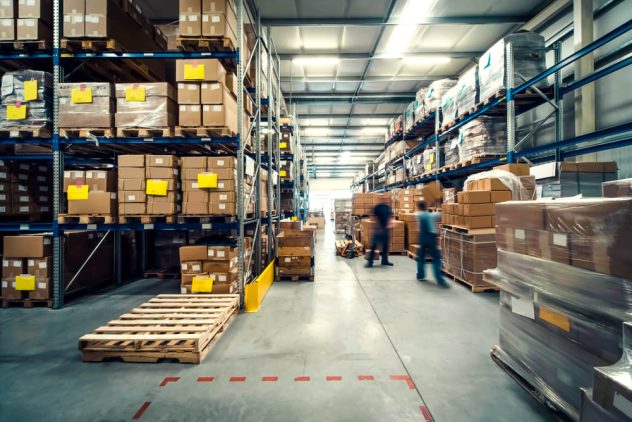The Evolution of Warehouse Operations: Trends and Technologies Shaping the Future
Warehouse operations have undergone significant transformations over the past few decades. Driven by technological advancements and shifting market demands, these changes are reshaping the efficiency and capabilities of warehouses globally. This article delves into the evolution of warehouse operations, focusing on the key drivers of change, the role of automation and robotics, the emergence of smart warehouses, sustainability efforts, challenges in modern warehouse management, and strategies for future readiness.

Key Drivers of Change in Warehouse Management
The landscape of warehouse management is undergoing a dynamic transformation, fuelled by several key drivers that are reshaping the industry’s future. The meteoric rise of e-commerce has been a pivotal factor, pushing the boundaries of what traditional warehouses can handle in terms of volume and speed. This surge in online shopping has been accompanied by an escalation in customer expectations. Today’s consumers demand not just quality products but also rapid delivery times, placing intense pressure on warehouses to deliver goods faster than ever before. Additionally, the global expansion of supply chains has introduced a level of complexity and scale that necessitates more sophisticated warehouse operations.
To navigate these challenges, businesses are increasingly turning to cutting-edge technologies. The objective is clear: to develop warehouse operations that are efficient and agile and scalable to meet the ever-growing demands of the market. This evolution is not just about keeping pace; it’s about leveraging innovation to stay ahead in a fiercely competitive landscape. As such, the push towards modernizing warehouse management systems is not merely a response to current trends but a strategic move to future-proof operations against an ever-changing economic backdrop.
The Impact of Automation and Robotics
In the realm of warehouse operations, automation and robotics have marked a revolutionary shift, fundamentally altering the core of how warehouses function. The introduction of Automated Storage and Retrieval Systems (ASRS), Autonomous Mobile Robots (AMRs), and robotic picking systems has set a new standard for efficiency and productivity. These technological advancements have been instrumental in reducing the reliance on manual labour, thus mitigating human error and enhancing the precision of warehouse activities.
The benefits of automation and robotics extend beyond error reduction; they also significantly ramp up operational efficiency. These technologies have made it possible for warehouses to manage and process larger quantities of goods with unprecedented accuracy and speed. Processes that were once bottlenecked by manual limitations are now streamlined, enabling a smoother flow of goods from warehouse to customer.
Moreover, the integration of these technologies into warehouse operations has catalysed a transformation in the workforce. It necessitates a shift towards a more skilled labour force that can manage, maintain, and optimize these sophisticated systems. As warehouses evolve into highly automated environments, the role of human workers is shifting towards oversight, maintenance, and strategic management, marking a significant shift in the warehouse work paradigm.
The Rise of the Smart Warehouse
The concept of the smart warehouse has revolutionized the way businesses approach inventory management and order fulfilment. Central to this transformation is the adoption of a warehouse management solution (WMS), an integrated system designed to optimize and automate warehouse operations. A WMS facilitates the seamless coordination of various warehouse systems, from inventory tracking to order processing, ensuring that operations run smoothly and efficiently.
Korber WMS emerges as a leading example of such a system, embodying the pinnacle of warehouse management technology. It stands out for its ability to integrate complex warehouse operations, providing real-time visibility and control over inventory, thereby significantly enhancing operational efficiency. With features designed to support the intricacies of warehouse management, Korber WMS enables businesses to navigate the challenges of modern logistics with ease.
Smart warehouses equipped with advanced warehouse management systems like Korber WMS are at the forefront of leveraging technologies such as the Internet of Things (IoT), artificial intelligence (AI), and machine learning. These technologies automate physical tasks and provide actionable insights that lead to smarter decision-making and operational improvements. By harnessing the power of a comprehensive warehouse management system, businesses can achieve unparalleled accuracy, efficiency, and productivity in their warehouse operations.
Sustainability and Green Warehousing
Sustainability in warehousing is increasingly becoming a priority for businesses worldwide. Green warehousing involves adopting eco-friendly practices and technologies that reduce the environmental impact of warehouse operations. This approach not only contributes to the global effort of environmental conservation but also aligns with the growing consumer demand for sustainable business practices.
Key strategies for achieving sustainability in warehouses include implementing energy-efficient lighting systems, such as LED lighting, significantly reducing energy consumption. Using solar panels and other renewable energy sources further enhances the sustainability profile of warehouse operations. Additionally, optimizing warehouse layout and design to maximize natural light and improve insulation can lead to substantial energy savings.
Incorporating green materials and recycling programs into warehouse operations also plays a critical role in minimizing waste and promoting sustainability. Automated systems and technologies that optimize space utilization and inventory management contribute to reducing the overall carbon footprint of warehouses. Moreover, investing in electric or hybrid vehicles for warehouse logistics further supports the transition to green warehousing.


